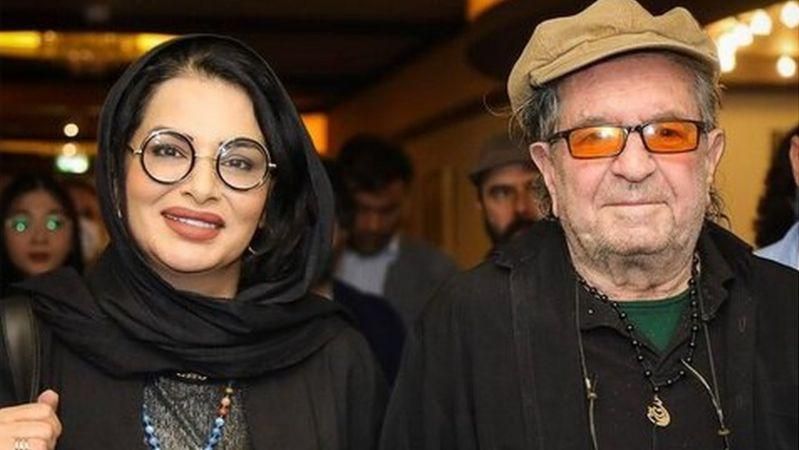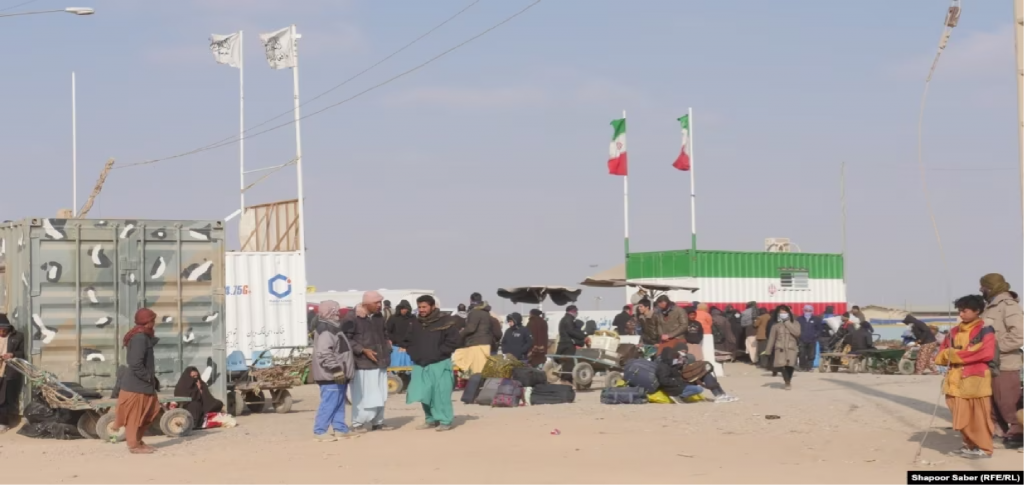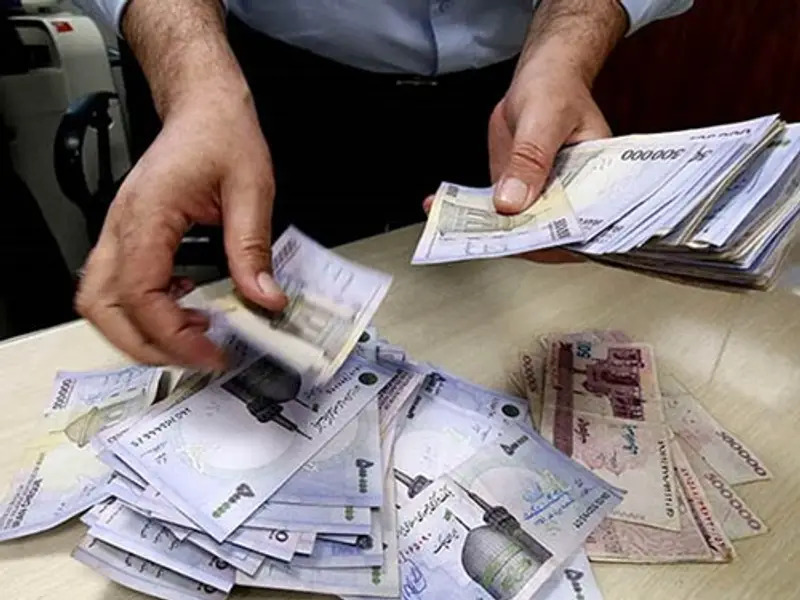
Path to Increase Participation
The editorial of Arman Emrooz argues that the level of public turnout in the upcoming parliamentary election depends on which candidates are qualified by the Guardian Council.
Certainly, public turnout in the election is determined by the number of people who vote — the higher this number, the higher people’s turnout in the election.
There is still some time until the parliamentary election in Iran, and there might be events and incidents that might positively or negatively impact the core of the politics in the country. It remains to be seen which candidates, individuals and groups are going to run for the parliamentary elections.
But one might speculate about the level of people’s participation in the elections. We must wait until the registration process for the candidates is completed and then see who will be deemed as qualified by the Guardian Council to run for elections. Then people can make better judgements about participating in the election.
This shows that the Guardian Council’s qualification – or disqualification – of candidates will have a direct impact on the level of participation. Eventually, it is the national resolve that will decide who will gain people’s votes.
If we believe that there must be change and development and conditions must be prepared for improvements, there is no way but doing so through the ballot box and the ballot box must have the last word.
It must not be forgotten that each vote is highly valued in Iran and there must be efforts to gain even one vote.
Repercussions of the Rise in Food Poverty for the Country
The editorial of Eghtesad Pooya warns that nationwide food poverty is threatening low-income households in Iran that are not capable of buying essential food items.
According to official entities’ estimates, the average of the poverty rate in the mid-2000s was 15% which meant one out of six individuals were considered as poor. This number reached 20% in the early 2010s and roughly 31% in 2021, which means one out of three Iranians suffer from poverty.
This shows a twofold increase in poverty in society. According to the indicators of the Statistical Center of Iran, food inflation has increased by 145% in the past two years. Prices of items like milk, cheese and eggs, which are considered important food items, have increased by 149%, oil and fat by 278% and fresh and dried fruits by 106%.
In addition, inflation has caused rental costs to soar. In the past two years, the level of rent has increased by 80%.Moreover, there has been an increase of 107% in prices in the health sector. Since 2018 when US sanctions were reinstated against Iran, the cost of food items has increased by 924%. This has had lethal repercussions on society.
These levels have pressured low-income households in society. The sustained pressure during the 2010s — which was exacerbated by Donald Trump pulling out from the nuclear deal with Iran — has hit society hard, driving middle-class households toward poverty.
According to global reports for January 2023, Iran ranks fifth regarding food inflation, which means that food security in society has reached an alarming point.
The Problem of Housing Will Not Be Resolved By Creating Investment Funds
The editorial of Arman Emrooz explains why establishing investment funds is not going to resolve the problem of housing as the main problem is people’s low incomes.
The government spokesperson has announced the ratification of legislation for boosting housing construction. This legislation is about financing construction and renting housing units by attracting private sector investment. Housing investment funds, aiming at expanding the participation of the private sector in financing the construction and renting of housing units, are tools to increase financing in this sector. Investment funds are financial entities that collect capital from investors and invest this capital in different economic sectors.
But the question remains: is the housing problem rooted in a scarcity of financing that such legislation is expected to resolve it? The main problem in the housing sector is that the Iranian people have become poorer. For years, income per capita has continued to decline and while this issue is not resolved, the problem of housing is not going to be solved.
So under the best circumstances, constructing a 70-meter house will cost about 1 billion tomans which makes it inaccessible for low-income groups. Therefore, financing, loans and creating housing investment funds will not help these groups of people to acquire houses.
Even if long-term loans are given to people, they will not be able to make the installment payments with their low income. So no financing plan is going to work for them. Investment funds are useful because they collect small amounts of capital, but they cannot help in resolving the housing problem. Furthermore, the private sector, which is supposed to make the investments, has realized there is a recession and whatever is constructed will not be sold.
Market Suffering From Middle East Conflicts
The editorial of Setareh Sobh sheds light on the impact of the conflicts in the Middle East between Hamas and Israel on Iran’s forex market, as the price of the dollar has increased in the currency market.
Central Bank officials must be asked about their plans for dealing with the situation that has been created in the Middle East and what they are doing about this particular situation. The Central Bank, as a matter of fact, is in charge of controlling the forex market.
Iran’s economy has been more impacted by the conflicts between Israel and Hamas than the sides that are engaged in the conflicts. None of the regional countries, or even the neighbors of the countries involved in these conflicts, has experienced any changes in their economic indicators.
Iran, because of its financial and ideological support for those groups that are opposing Israel, is seen as involved in these conflicts. But the turbulence in the forex market is not just because of Iran’s political position. The forex market, like an old unhealed wound, is readily affected by any incident.
Under these circumstances, Iranian exporters and importers, investors in the stock market and ordinary people are worried about their own economic conditions and their families. People are concerned about their livelihoods and businesses.
Today, there is this fear in society as to whether the sanctions will become heavier against Iran. Will Iran become engaged in these conflicts? Will Israel attack Iran’s soil? The market in Iran is psychologically impacted by all the tensions in the Middle East.
There is hope that if the Central Bank enforces its forex policies appositely, it can manage the turbulence in the market.
If the war between the Israelis and the Palestinians subsides, the turbulence in the forex market will decline, but Iranian officials must make sure that no fire remains under the ashes. At this juncture, the policy of the Central Bank will be decisive and must provide the necessary forex for the market while having dominance over it.

Saudi Ambassador Visits Iran’s Chamber of Guilds
Ambassador Abdullah bin Saud al-Anzi attended a meeting at Iran’s Chamber of Guilds, stating that relations and interests between Iran and Saudi Arabia will be sustainable and there is great potential for trade between the two countries.
He added that the private sector plays an important role in both countries. He stated that Saudi Arabia’s economy is open and Vision 2030 launched by Saudi Crown Prince Mohammad bin Salman includes many projects which will be implemented for achieving progress in Saudi Arabia, highlighting that this blessing will not only be for Saudi Arabia but for all the countries in the region.
The Saudi ambassador went on to say that Iran is an important neighbor, has many capacities and has a good strategic position; so cooperation with Saudi Arabia will create beneficial economic opportunities.
The Saudi ambassador underscored that both countries have many advantages, as well as prosperous and creative economies, making it possible for them to establish joint projects.
Pointing to Saudi Arabia’s Chamber of Commerce, he stated that interaction between private sector companies can be intensified and this will be discussed in joint sessions with Iran’s Chamber of Guilds.
Head of Iran’s Chamber of Guilds Mojtaba Safaee also pointed to boosting relations with Saudi Arabia, emphasizing that today Iran’s private sector and economic actors are ready for cooperation with Saudi Arabia, and in the field of trade, Iran’s Chamber of Guilds will open a new chapter in relations with Saudi Arabia from today.
He added that some guilds, like those relating to Iran’s carpet and leather products, can start exporting to Saudi Arabia within a week.
Safaee also announced willingness to cooperate with Saudi Arabia in building hotels, shopping malls and tourist centers.
In this meeting, they reached an agreement for assigning representatives to study the scope of bilateral trade.
Celebrated Film Director, Wife Brutally Murdered at Home

News of the brutal murder of prominent Iranian film director Dariush Mehrjui and his wife Vahideh Mohammadifard, script writer and assistant director, has shocked Iranians, particularly movie lovers. According to an early report by the forensic medical center, Mehrjui and his wife died of “severe bleeding due to wounds inflicted by a sharp object.”
Mehrjui and his wife were killed in their private villa in the city of Fardis, Alborz Province. Their bodies were found by their daughter Mona.
Days after these murders, Iranian activists and media outlets raised the possibility of a “political” motivation behind the murder of Dariush Mehrjui.
Lawyer and human rights activist Nasrin Sotoudeh has written in reaction to the murder of Mehrjui and his wife that this news, in the historical memory of all Iranians, is a reminder of the brutal murder of Dariush Forouhar and his wife in the past — in what is now considered as chain murders committed by Iranian security forces. She added, “Is this a political murder? Whether it is political or not, it explains why we double down on holding a referendum for forming an ordinary government. Because even in the best case scenario, this government cannot ensure security.”
In addition, political activist Emadoldin Baghi wrote on his X (formerly Twitter) account that this murder “was exactly in the style of the murder of Dariush Forouhar and his wife” and “was certainly reminiscent of the chain murders in the 1990s.” He added, “With associating the murder of the two Dariushes and their wives by the same method, what message are they trying to send?”
Jomhuri Eslami daily, in its editorial, compared the murder of Dariush Mehrjui and his wife to the “chain murders in the 1990s,” stating that “the officials, having learned the lessons of the chain murders and its tragic repercussions, must immediately and seriously take measures for finding the root cause of the recent incident.”
An Iranian government spokesperson announced that President Ebrahim Raisi has issued a “special order” for the immediate investigation of the murder of Dariush Mehrjui and his wife.
Shortage, Rationing of Baby Formula

While by the order of Iranian Supreme Leader Ali Khamenei, Iranian officials must convince people to “breed children” through ratifying different laws and incentive policies, they have not been able to resolve the issue of baby formula which is the main source of a baby’s nutrition.
Sajad Esmaili, advisor to the Drug and Food Organization, announced the delivery of the first shipment of imported baby formula. In recent months, a number of experts in the food industry have warned about the rationing of baby formula, calling the situation critical.
Esmaili promised that within the next two weeks, about 4 million cans of baby formula will enter the country. Meanwhile, according to ISNA news agency, so far 4 million cans of baby formula have entered Iran and will be distributed within the next two weeks.
Esmaili said that the forex problem for purchasing baby formula has been the main cause of the shortage of baby formula, clarifying that the issue of forex has been resolved and producers have seriously increased their production.
Following the reports regarding the shortage of baby formula in Iran, the Drug and Food Organization in the Health Ministry had announced that selling baby formula in Iranian drugstores would be allowed only by presenting babies’ national code. Some observers considered this measure as the rationing of baby formula.
540 Civil Activists, Academics Back Afghan Immigrants, Refugees

More than 540 civil activists, journalists, artists, lawyers, academics and medical doctors issued a statement to declare their solidarity with Afghan immigrants and refugees in Iran, while condemning the “formation of certain trends that beat the drums of violence, hatred and discrimination for resolving the issue of immigrants” and calling it “a tragic step backward for Iranian society and violation of basic human and civil rights and values.”
The statement was issued after current and former Iranian officials, as well as some Iranian media outlets, increasingly criticized the presence of Afghan immigrants in recent days, following which footage was released showing violent confrontations with Afghan immigrants in some Iranian cities.
The signatories to the statement have emphasized on observing human dignity and the rights of immigrants in accordance with Iranian ethical principles, spiritual values and international law.
The statement asserts that Iran’s legal system has been the biggest obstacle and challenge for the assimilation of immigrants in the host society.
It has been added that after 40 years, many first and second generation immigrants have still not obtained Iranian citizenship and the government’s organizations would not even issue birth certificates for babies with Iranian mothers and Afghan fathers.
In recent weeks, footage has been released of violent confrontations with Afghan immigrants in certain cities of Iran.
Earlier, Iranian social media users, using racist language, asked the Iranian government to confront Afghan immigrants and expel them from the country.
Since the Taliban takeover in Afghanistan, many more Afghan citizens have entered Iran but many of them have been arrested and deported back to Afghanistan.
Early this year, the Iranian Interior Ministry’s department dealing with foreign citizens and immigrants announced that there are 5 million Afghan citizens in Iran.
Budget Deficit Predicted to Double This Year

According to Hammihan daily’s prediction, if the revenues of the second half of the year are earned like the first half, the level of the budget deficit will be twofold compared to the previous year.
Based on this report, in the first half of this year, more than 341,000 billion tomans of budget revenues have not been earned.
Earlier, Davood Manzour, the head of Iran’s Budget and Planning Organization and deputy to Ebrahim Raisi, had announced that 67% of the predicted revenues for this year’s budget had been earned.
Now, given that the resources of the public budget for this year were 2,082,000 billion tomans, the government should have earned a revenue of 1,041,000 billion tomans. But as Manzour said, only less than 700,000 billion tomans have been earned.
Therefore, more than 341,000 billion tomans of the predicted budget for the first half of the year have not been earned.
Hammihan daily has raised the question that given the government’s emphasis on the increase in oil sales, how come half of the predicted oil revenues for the first six months of the year have not been earned?
This Iranian daily has predicted that if the revenues for the second half of the year are similar to the first half, the level of the budget deficit will be twofold compared to the previous year.
In the meantime, the government’s efforts for collecting tax revenues and pressuring taxpayers in society have been openly criticized by economic experts.
